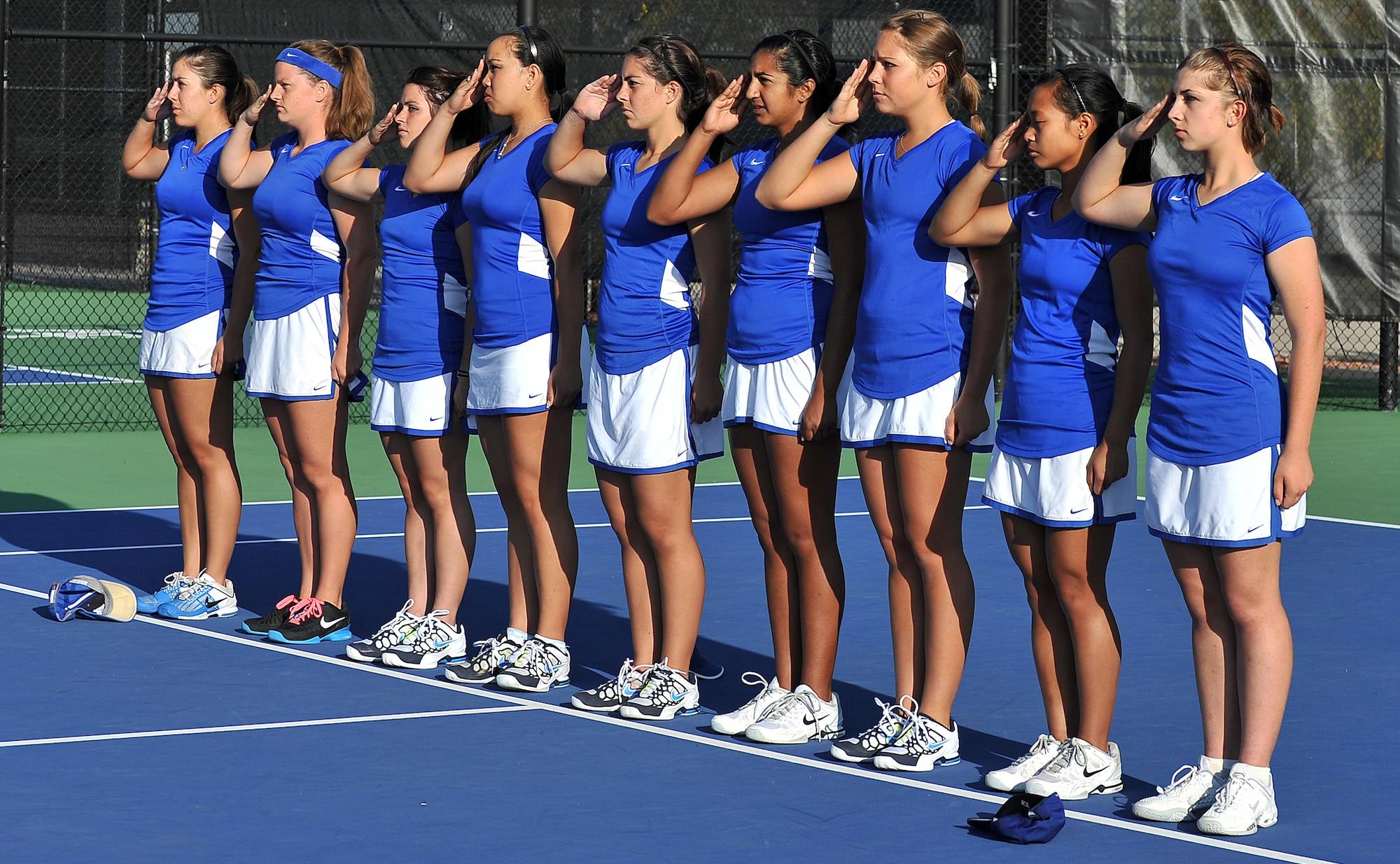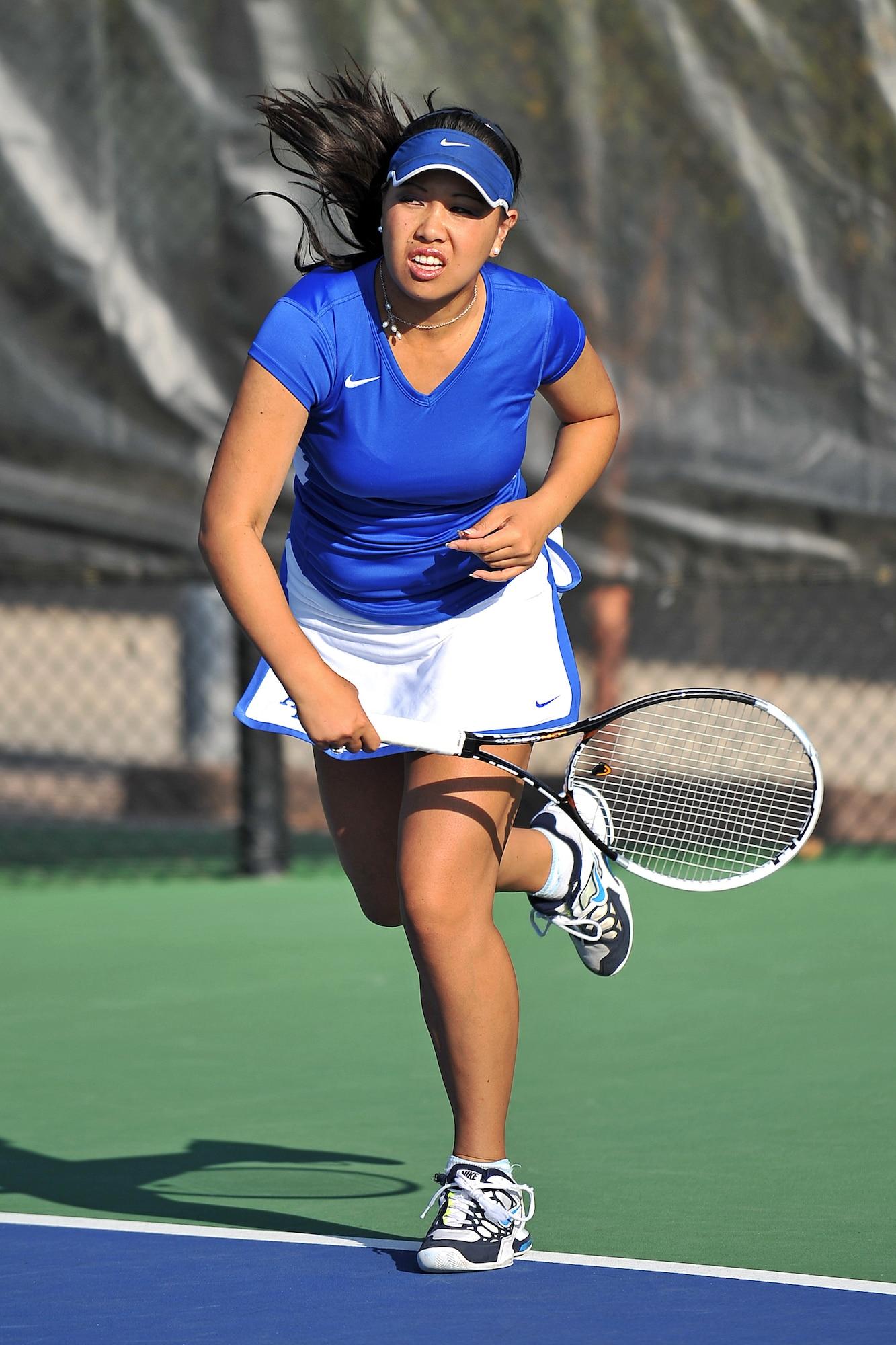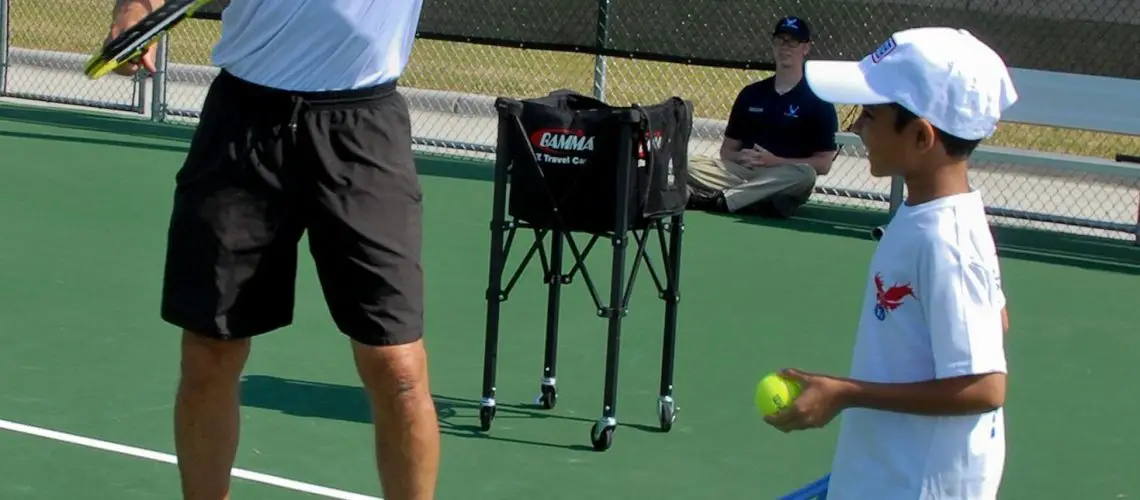We may earn money or products from the companies mentioned in this post.
Brief Overview of College Tennis Recruitment

When it comes to pursuing a career in tennis, getting recruited for college tennis is a crucial step in the journey College tennis recruitment offers aspiring athletes the opportunity to showcase their skills and compete at the collegiate level It serves as a pathway for talented players to further develop their game, gain exposure, and potentially earn scholarships
The Importance of Getting Recruited for College Tennis
Getting recruited for college tennis holds immense significance for young tennis players It opens doors to numerous opportunities that can shape their future both on and off the court By being recruited, athletes have the chance to play competitively against top-level opponents, which helps them improve their game and reach new heights in their tennis career
Moreover, being part of a college tennis team allows players to represent their institution, fostering a sense of pride and camaraderie This experience not only enhances their athletic abilities but also provides valuable life skills such as teamwork, discipline, time management, and perseverance
Opportunities and Benefits of Playing at the Collegiate Level
Playing college tennis offers an array of opportunities and benefits that extend beyond the sport itself Firstly, collegiate competition provides exposure to coaches, scouts, and professional networks within the industry This exposure increases the chances of gaining recognition from professional teams or sponsors
In addition to exposure, playing at the collegiate level often comes with financial benefits in the form of scholarships Many colleges offer athletic scholarships specifically for tennis players based on skill level and potential contributions to their team’s success
Beyond financial aid, college tennis provides athletes with access to world-class training facilities, coaching expertise, sports science support staff, physiotherapists, nutritionists – all designed to optimize player development both physically and mentally
Purpose of the Blog Post

The purpose of this blog post is to provide aspiring tennis players with comprehensive information on how to navigate the college tennis recruitment process It will cover various aspects, including building a strong player profile, reaching out to coaches, preparing for college showcases and tournaments, and understanding the eligibility requirements
By delving into these topics, this article aims to equip young athletes with actionable strategies and insights that will help them stand out in the competitive world of college tennis recruitment Whether you’re a high school player looking to take your game to the next level or a junior player aiming for a successful collegiate career, this guide will serve as your roadmap to securing a spot on a college tennis team
Building a Strong Tennis Portfolio

Tennis is not just a sport; it’s a lifelong passion that requires dedication and hard work Whether you dream of playing professionally or simply want to excel in the game, building a strong tennis portfolio is crucial This article will explore three key aspects that can help you enhance your skills, raise your ranking, and create an impressive player profile
Improving Your Skillset and Ranking
Participating in local, regional, and national tournaments is an excellent way to improve your skills and gain valuable experience These competitions provide opportunities to test yourself against different opponents with varying styles of play Additionally, participating in such events helps you develop mental toughness and adaptability on the court
An important factor in building your tennis portfolio is obtaining a ranking from reputable organizations like the United States Tennis Association (USTA) or the International Tennis Federation (ITF). These rankings act as benchmarks for your progress and can open doors to higher-level tournaments, college scholarships, or even professional opportunities Strive to achieve the best possible ranking within your age group and region
Creating a Compelling Player Profile
A well-crafted player profile showcases not only your tennis skills but also highlights your personal information, academic achievements, and athletic accomplishments It provides an overview of who you are as both an athlete and an individual
To make your player profile stand out, consider incorporating high-quality videos that showcase your skills and consistency on the court These videos should capture various aspects of your game including powerful serves, precise groundstrokes, strategic shot selection, agility, footwork, and overall match performance Remember to choose clips that truly represent your abilities while keeping the video concise yet impactful
Developing a Strong Work Ethic, Sportsmanship, and Communication Skills
A strong tennis portfolio is not just about physical abilities but also encompasses personal qualities that make you a well-rounded player Developing a strong work ethic, sportsmanship, and communication skills are crucial aspects of your overall growth as an athlete
Coachability is key to improvement Embrace feedback from coaches and mentors, and be open to trying new techniques or strategies Dedicate yourself to consistent practice sessions, setting specific goals, and maintaining discipline in your training routine
Furthermore, exhibiting good sportsmanship on and off the court is highly regarded by both fellow players and coaches Show respect for your opponents, follow the rules of fair play, and display graciousness in victory or defeat These qualities not only contribute to your reputation but also elevate the overall tennis community
Lastly, effective communication skills are essential for fostering positive relationships with coaches, teammates, tournament officials, and sponsors Being able to articulate your thoughts clearly ensures that you can express any concerns or questions while building connections within the tennis world
In conclusion,
Identifying Suitable Colleges and Tennis Programs

When it comes to finding the right college and tennis program, conducting thorough research is key Begin by exploring potential schools that align with your academic goals and desired major It’s important to consider the different types of colleges available, such as NCAA Division I, II, III; NAIA; and Junior College (NJCAA). Understanding the distinctions between these divisions can help you identify institutions that suit your athletic aspirations
However, academics should not be overlooked Take into account the academic requirements of each college and determine if they match your desired major Finding a balance between your athletic ambitions and educational pursuits will ensure a fulfilling college experience
Analyzing Tennis Programs’ Competitiveness
Once you’ve narrowed down potential colleges, it’s time to evaluate the competitiveness of their tennis programs One crucial aspect to consider is roster spots availability A program with limited spots may have more intense competition for securing a place on the team On the other hand, programs with larger rosters might offer more opportunities for players at various skill levels
Tennis program rankings can also provide valuable insight into their competitiveness Look for reputable sources that rank collegiate tennis programs based on performance, results, and overall reputation These rankings can give you an indication of how well a particular program fares against others in its division
Connecting with Coaches
To increase your chances of getting recruited by a college tennis program, it’s essential to establish connections with coaches early on Start by crafting an initial email introduction where you express genuine interest in their program Personalize your message by highlighting specific aspects or achievements that caught your attention
Building relationships with coaches requires consistent follow-ups Keep them updated on your progress both academically and athletically Share your tournament results, academic achievements, or any other relevant information that showcases your dedication and passion for tennis Regular communication will demonstrate your commitment and keep you at the forefront of coaches’ minds during the recruiting process
Marketing Yourself as a Top Prospect

When it comes to making a name for yourself as a top prospect in the tennis world, utilizing online platforms can be a game-changer Creating profiles on recruiting websites allows you to showcase your skills and achievements, making it easier for college coaches to discover you But don’t stop there – take advantage of social media platforms to share your match results and highlight your progress By building an online presence, you increase your exposure and attract the attention of those who matter
In addition to leveraging online platforms, networking within the tennis community is crucial for marketing yourself as a top prospect Seek recommendations from high school or club coaches who have witnessed your talent firsthand Their endorsement carries weight and can open doors for opportunities at the next level Another avenue worth exploring is attending college tennis camps where you can showcase your skills in front of college coaches actively scouting for talent These camps provide an invaluable opportunity to make connections and leave a lasting impression on decision-makers
Preparing for official visits is another important aspect of marketing yourself effectively Before stepping foot on campus, do thorough research about the school’s academics, athletic program, and campus life This will not only help you make informed decisions but also enable you to ask thoughtful questions during your visit that demonstrate genuine interest Additionally, don’t shy away from addressing any concerns or questions you may have with the coaching staff – being proactive shows maturity and professionalism
Conclusion

In conclusion, getting recruited for college tennis requires a combination of talent, dedication, and strategic planning Here are the key points to keep in mind:
1 Start early and build a strong foundation
To increase your chances of being recruited, it is important to start playing tennis at a young age and develop your skills consistently over time Joining a tennis club or academy and working with experienced coaches can help you refine your technique and improve your overall game
2 Maintain good academic standing
Colleges not only look for talented athletes but also for students who excel academically Make sure to prioritize your studies and maintain good grades throughout high school A strong academic record will make you more appealing to college coaches and increase your chances of being recruited
3 Create an impressive player profile
A well-crafted player profile is essential in showcasing your skills, achievements, and potential to college coaches Include relevant information such as tournament results, rankings, awards, and any notable accomplishments on the court Additionally, consider creating a highlight video that showcases your best performances
4 Attend college tennis camps and tournaments
Attending college tennis camps and tournaments not only allows you to showcase your skills but also provides an opportunity to connect with college coaches directly Make sure to research the schools that interest you and participate in events where those coaches are likely to be present
5 Be proactive in reaching out to college coaches
Don’t wait for coaches to come to you – take the initiative! Send personalized emails introducing yourself, expressing your interest in their program, and highlighting why you would be a valuable addition to their team Follow up with phone calls or in-person visits to establish a personal connection
Remember, the recruitment process can be competitive and challenging, but perseverance and proactivity are key Stay focused on your goals, work hard both on and off the court, and never give up With determination and the right approach, you can increase your chances of getting recruited for college tennis
Useful Links

5 tips on How to get Recruited to be a D1 Tennis Player
What are the Rules for NCAA College Tennis Recruiting?
7 Tennis Recruiting Tips From College Coaches – CaptainU
Part I – Want to become a recruited College Tennis Player?
How to get recruited for college tennis
Do you want to play tennis in college?
The Keys to Making Your Tennis Recruiting Video
Your Ultimate College Tennis Recruiting Guide
Columbia University – Men’s Tennis Scholarships
Will College Tennis Camps Help a Player Get Recruited?
Tennis Scholarships | Get Recruited – Athlete +
Getting Through College Recruiting – Everything You Need …
3 Steps For An Effective College Tennis Recruiting Strategy
International College Tennis Player NCAA Tennis Recruiting
The Tennis Recruiting Network
Is Your UTR High Enough To Play College Tennis?
The Best College Tennis Pathway
university of kentucky tennis coach
College Tennis in the U.S. – What you need to know






